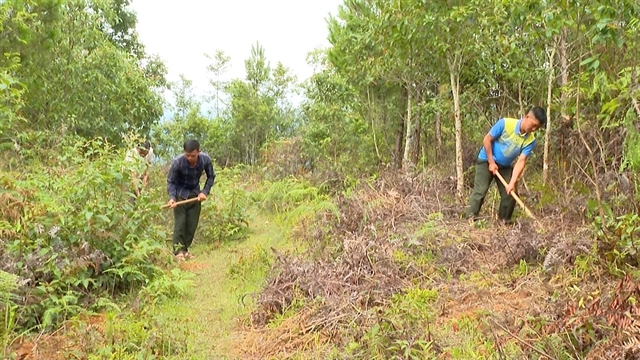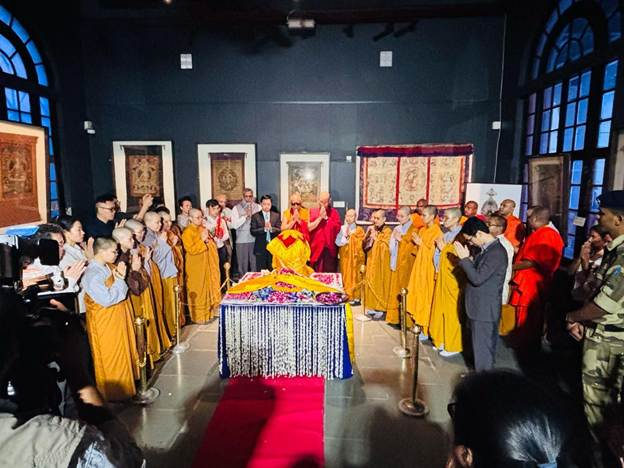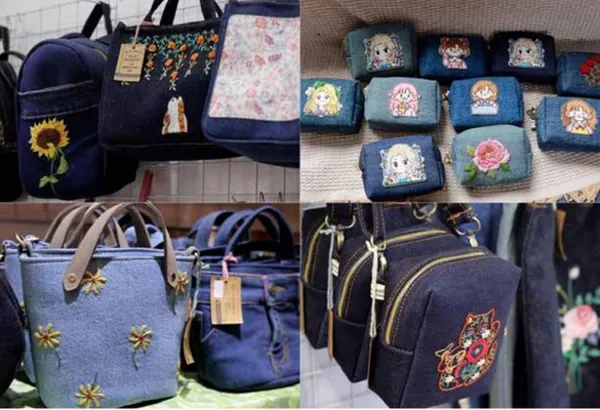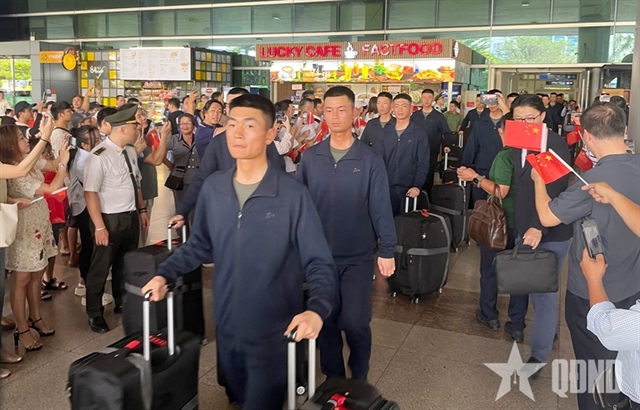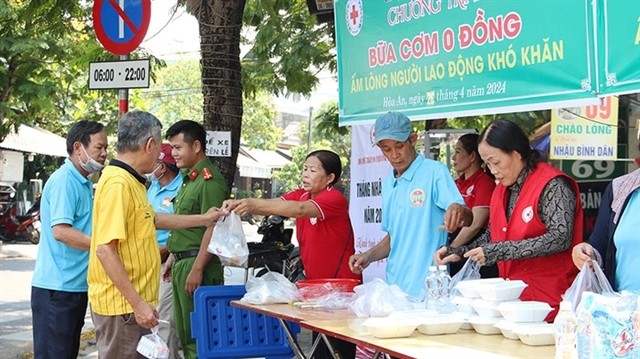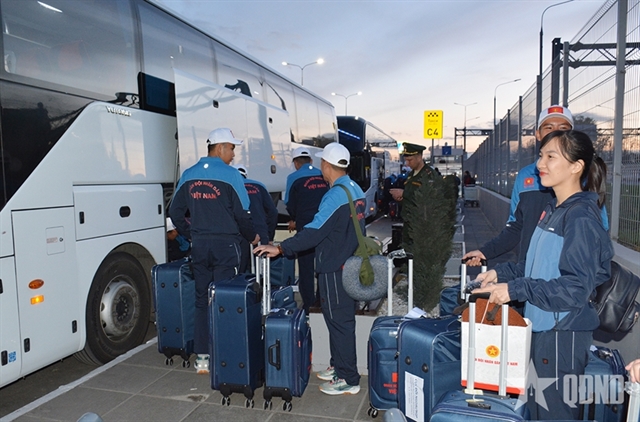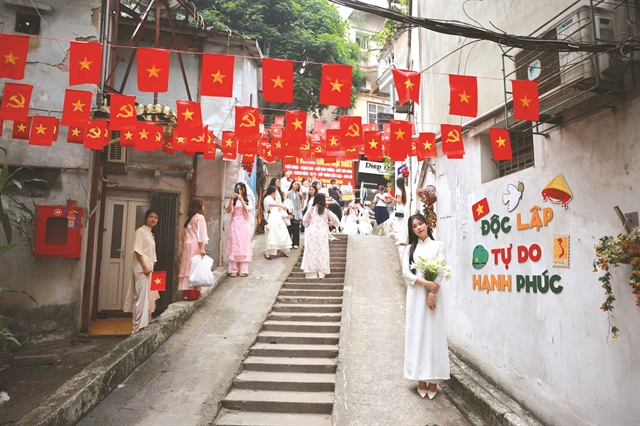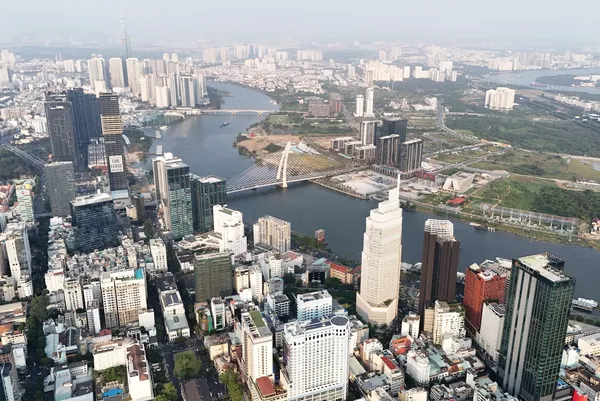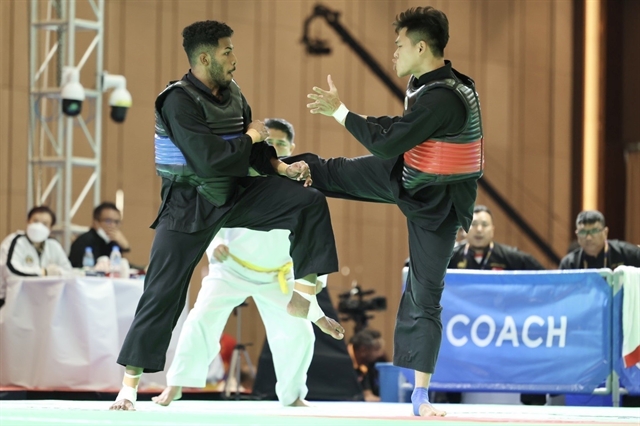

A short story by Vũ Đảm
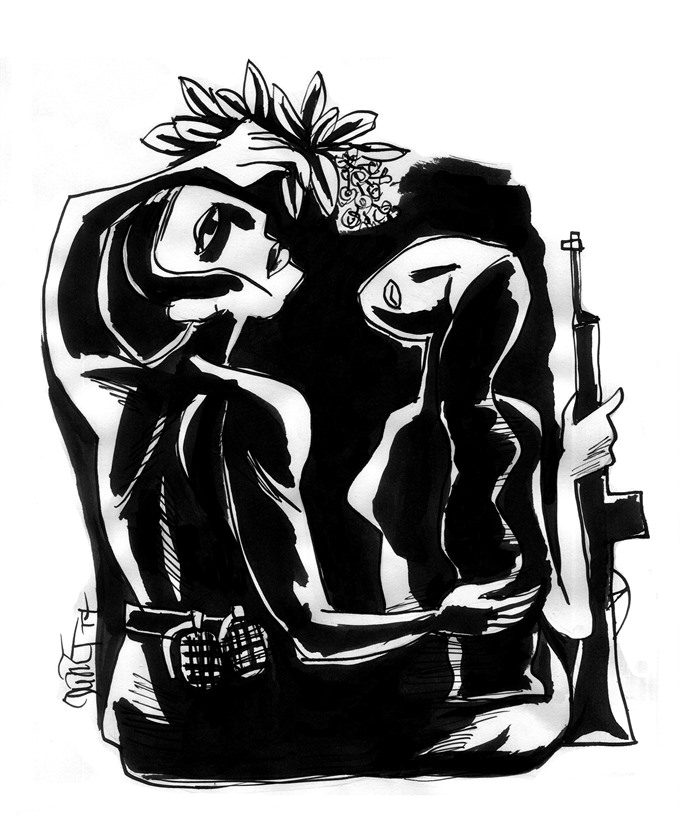 |
| Illustration by Đỗ Dũng |
By Vũ Đảm
I finished my breakfast at 8 o’clock with a cup of coffee and the sonata Moonlight. Then I began my working day by reading a scientific report “The Preservation of National Cultural Heritage”. But I could not continue as I was struck by a sneezing fit. I stood up and walked toward the window, looking down onto the street. It was already autumn and Hà Nội was drenched in golden sunlight that reflected off the young, nubile students in elegant áo dài dresses.
The white milk flowers were blooming by the window, making me feel like having one more cup of coffee. My daughter made it for me. I savoured the coffee and inhaled the fragrance of the milk flowers. Suddenly the door bell rang. My daughter led a tall, robust man into the house. He looked at me and said:
“I’m NămChiêu, husband of Út Huệ. I’ve come from Saigon. Út Huệ is seriously ill now and she wants to see you one last time”
My jaw almost hit the floor. If the meeting had happened twenty five years before, there would have been a gun duel between me and Năm Chiêu. Yet, what had happened twenty five years ago had become a sad memory. When I left Sài Gòn to go and study in the Soviet Union, I had been haunted by Út Huệ’s high treason. From a student in Saigon, I had trained her to become a special fighter. We were the comrades-in-arms and what’s more, lovers. Út Huệ often asked me to tell her stories about Hà Nội and the special milk flowers. She loved them so much so that I called her “Milk Flower” from then on. She would lean her head on my shoulder, saying:
“When the war is over, I want to be a daughter of Hà Nội. I’ll smell milk flowers every day.”
Each Sunday morning, Huệ would take me to Tao Đàn coffee shop near a large public garden. We both liked this coffee shop for its tranquility and beautiful classical music. Yet, one day, she betrayed me and her comrades-in-arms by switching sides.
“Nice to meet you,” I said and shook hands with Năm Chiêu.
Năm Chiêu took out of his large bag four pungent durian fruits and a small bag of coffee. Út Huệ hadn’t forgotten my tastes. And then Năm Chiêu told me that Út Huệ had serious tuberculosis and she wanted to see me for one last time before she died. Everything came back to me, I remembered the day Út Huệ got married to this man who was standing before me now. I had wanted to storm into the wedding and shoot the man who had robbed me of Út Huệ, but my comrades stopped me. My heart was broken. Soon after I was wounded and taken back to Hà Nội. After that I was sent to the Soviet Union and studied there. I met Hiền in Moscow. We loved each other very much and slowly, I forgot Út Huệ.
I was in a pickle because in three days’ time, I had to go to France on a business trip. I could not go to Sài Gòn and see Út Huệ. So I told Năm Chiêu that I could not go now. Năm Chiêu said nothing and stared deeply into my eyes. Right after that he said goodbye to me and went to the airport. Three days later, I flew to France when it was in autumn. The air was cold. On the plane, I felt as if someone was calling me back. I was dozing when I heard a woman’s voice: “Brother Ba, I’m leaving now!” In fear, I opened my eyes and thought it was Út Huệ’s voice.
It was an ill omen. When I came home from France, I booked a flight to Sài Gòn to visit Út Huệ. Unfortunately, when I arrived I learned she had died on the day I flew to France. Her husband Năm Chiêu told me that before she died, she had called my name many times. Năm Chiêu told me that he had carried Út Huệ in his arms and cried:
“My dear wife, you are an unsung heroine! My unsung heroine!”
I was shocked to hear this. Having burnt incense and planted it on Út Huệ’s grave, I stood dumfounded before her grave. Năm Chiêu understood my confusion. So he took me away and said:
“You know, I wanted to tell you this story long time ago, but Út Huệ tried to stop me. Now she’s gone, and I want to clear her name. Do you remember your meeting with two important persons in a riverside house on a night in early 1970?” Năm Chiêu said as he paced around the room.
I had never forgotten that meeting with Tư Hương and Z.5 to discuss the attack plan against the city police headquarters. When the meeting started, we heard shooting outside. So we swam across the river to hide in Út Huệ’s house. After that, Út Huệ was missing for half a month, then resurfaced, freshly married to the captain of the Sài Gòn police force Năm Chiêu. After Út Huệ’s treason, many of our revolutionary bases had to change location. And in a battle against the Sài Gòn regime’s soldiers, I was wounded and taken back to the North for treatment. After that I was sent to the Soviet Union to study.
“If Út Huệ did not shoot in the air to alert you, I’m sure you would have all been arrested,” Năm Chiêu continued “I was head over heels in love with her when she was a student, but she did not love me. That fateful night, Út Huệ discovered we were going to raid the meeting. To hoodwink us she confessed deep feelings for me to save you all. I let her fire the warning shot so I could marry her. I took her to my house that night and two weeks later, we held the wedding. You once loved her, so you understand my feelings for her. I would do anything to love her and to be loved.” Năm Chiêu paused for a moment and looked into my eyes.
Oh, my dear Út Huệ, you were really the unsung heroine! You sacrificed yourself for the Fatherland, for your people and for your lover! I kneeled down before her grave and kissed a branch of a milk flower I had brought from Hà Nội. Even though the flower had withered, its fragrance still hung in the air around me.
Translated by Mạnh Chương

